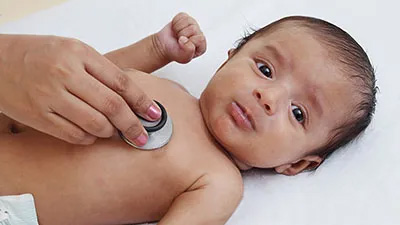Seattle Children’s Emergency Department and Hospital Capacity Update
December 6, 2023
 Seattle Children’s continues to see high numbers of pediatric patients seeking care in our Emergency Department (ED) and psychiatry inpatient units for mental and behavioral health emergencies.
Seattle Children’s continues to see high numbers of pediatric patients seeking care in our Emergency Department (ED) and psychiatry inpatient units for mental and behavioral health emergencies.
Our emergency operations center that opened for this behavioral health emergency remains open. The strategies we have put in place have succeeded in helping to discharge or progress care for these patients, creating much-needed capacity for new patients in the ED and psychiatry inpatient units. Despite these successes, we anticipate a continued high level of demand on the ED and PBMU for the foreseeable future.
We are experiencing high volumes of RSV in the community; flu is arriving more slowly.
In case you missed it, please see our update from Nov. 21, 2023: ED Patient Surge for Mental and Behavioral Health; Elevated RSV Rates Prompt Changes to Masking/Visitor Policies.
As we respond to the youth mental and behavioral health emergency, the safety, security and well-being of our patient and workforce is our top priority. We are taking steps to support patient and staff safety including adding supplemental staffing resources and increasing security. This work is ongoing and includes collaborating with our partners at all levels of government (local, state, federal) and continuing to listen to and support our workforce, patients and families.
How you can help
We continue to ask community providers to see patients in primary care whenever appropriate and feasible, to help preserve capacity in the ED for those who need it. If you are sending a patient to the ED, please call first to alert us: 206-987-8899 or toll-free 866-987-8899.
Tips for Treating RSV/Bronchiolitis
 With RSV rates currently high in the community, we would like to remind providers that we offer several resources for caring for patients in primary care and supporting families with education materials.
With RSV rates currently high in the community, we would like to remind providers that we offer several resources for caring for patients in primary care and supporting families with education materials.
- Bronchiolitis: Rest Is Best! offers information for providers on diagnosis, treatment, medication and more.
- Family-facing Bronchiolitis Care Packet
- Video for parents on caring for children with bronchiolitis and RSV (included in the care packets above)
- Bronchiolitis pathway for providers
- Provider treatment tips:
- Bronchiolitis is a viral illness needing supportive care measures.
- Timeline of symptoms: increasing symptoms for two to three days with very slow resolution from day 6 to 22+.
- During height of symptoms (days 2- 6): clinical course varies minute to minute, clinical decisions and interventions should only be considered for sustained changes in clinical presentation
- Viral swab testing and CXRs do not alter the clinical course or parent satisfaction in care and can lead to over prescription of antibiotics (25% of children with bronchiolitis will have atelectasis on CXR)
- Albuterol is not helpful for bronchiolitis and may lead to side effects (tachycardia, iatrogenic V/Q mismatch, increased cost or implications for future illnesses, i.e., excess albuterol prescribing in the future.